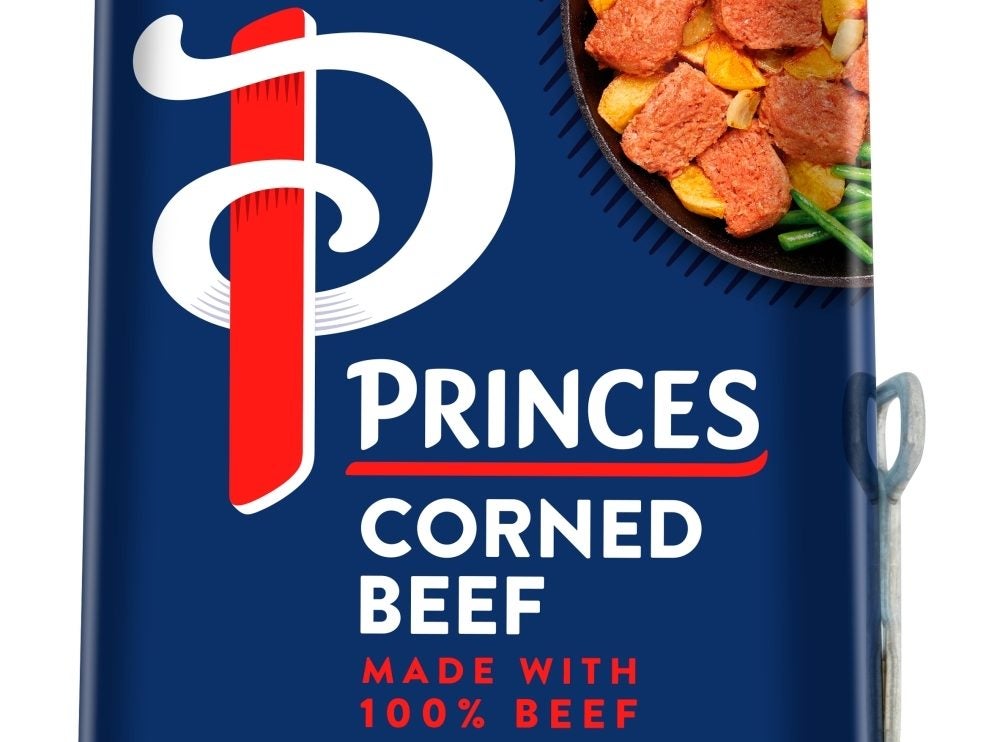
Parties interested in buying Princes, the UK food and drinks group, have reportedly been narrowed down to two potential bidders.
Speculation has circulated all year over potential suitors for the canned food and shelf-stable drinks business owned by Japanese conglomerate Mitsubishi Corp. However, Mitsubishi has not confirmed a solid intent to sell Princes.

Discover B2B Marketing That Performs
Combine business intelligence and editorial excellence to reach engaged professionals across 36 leading media platforms.
UK broadcaster Sky News reported on Friday (8 December) that Italy-based food company Newlat and buyout business Epiris are the remaining interested parties seeking to purchase Princes.
The broadcaster did not reveal the source of the new information other than Sky News “understands” that is the case. In September, the news channel also named Newlat and Epiris as among the prospective buyers of Princes, along with financial investors Lone Star Funds, Aurelius and One Rock Capital.
On Friday, Sky News reported the group has now been whittled down to two, noting it was ‘unclear’ when a deal might be finalised nor whether Newlat or Epiris are willing to pay the speculated asking price of £400m ($502.6m).
Epiris declined to comment when contacted by Just Food today (11 December).

US Tariffs are shifting - will you react or anticipate?
Don’t let policy changes catch you off guard. Stay proactive with real-time data and expert analysis.
By GlobalDataA Princes spokesperson said in a statement: “Princes does not respond to market speculation suffice to say that in the normal course of business, we routinely seek to identify growth and investment strategies. No decisions have been taken.”
Newlat, which owns UK food group Symington’s, had not replied at the time of publication. Mitsubishi’s European public relations team in London directed enquiries to the company’s head office in Tokyo. Just Food has approached the business for comment.
In January, financial-markets news publication Debtwire said Mitsubishi had appointed M&A advisers at Houlihan Lokey to handle a sale process.
Approached by Just Food at the time, a spokesperson for Mitsubishi said “no decision” had been made on Princes. Asked if Mitsubishi had hired bankers to oversee a potential sale, the spokesperson declined to comment. Referring to Mitsubishi as a whole, he added: “We are always looking to seek opportunities to grow the company.”
Mitsubishi acquired Princes, based in Liverpool in north-west England, in 1989. At that time, Princes focused on the import and distribution of shelf-stable food. The company’s product range now also includes edible oils and beverages.
Princes has two food factories and three beverage production sites in the UK. The company also has a tomato-processing facility in Italy and a tuna-processing site in Mauritius.
Among Princes’ assets are shares in Edible Oils, a UK-based supplier of bottled edible oils. Princes co-owns the business through a joint venture with agri-food group ADM. Edible Oils has three production facilities.
In the year to 31 March 2022, Princes generated revenue of £1.44bn, down 8% on the previous 12 months. Princes said it was lapping “an exceptional increase” in revenue booked the year earlier when Covid-19 boosted demand.
Operating profit stood at £37.4m, versus £47.5m the year before. Profit for the year attributable to the owners of the company halved, falling from £34.8m to £17.2m. Princes pointed to lower sales volumes, higher tax expenses and a boost to the previous year’s profits from an asset sale.




